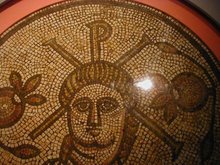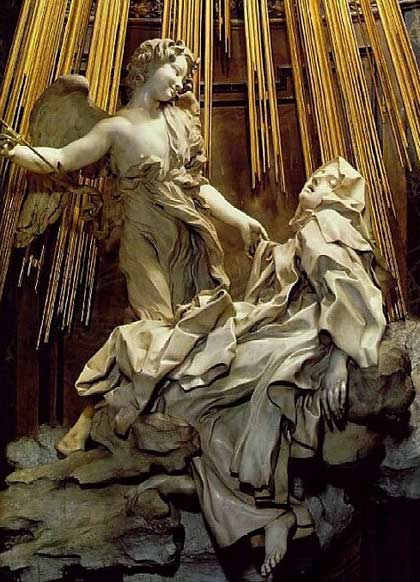The US election highlighted what is happening politically in many other places: the polarising of global and national identities. Nationalism is a mounting force that rejects the challenges of the newborn sense of global citizenship. As history shows, nationalism begins with the euphoria of false hope and ends in mutual destruction.
Is there a contemplative response to this? There is. But it is not sectarian or ideological. The contemplative response is conscious of the common ground. It builds communities of faith in this ground among people of widely different beliefs.
This collective vision of the human community can only happen politically in the most civilised societies. But it happens between friends and groups of friends who quietly restore an uncivilised society to humane values. Their experience of the truthfulness of silence helps them trust each other with their differences. Those differences can be respected without violence or divisiveness.
Societies lacking the root system of such contemplative networks, nourished by silence, must face an erosion of civilised values because contemplation is the foundation of civilisation.
I recently spent time in Venezuela, a society in severe distress. But I was inspired to see that our community there is even more deeply and compassionately committed to the practice and teaching of meditation, particularly to the young. It is also creating civilised forums for open dialogue. They prove that a contemplative response to crisis does really exist. The World Community is privileged to have such members.
I feel sure that the WCCM USA will respond in the same way to their post-election situation where such deep divisions and turbulence have been exposed. You will be an example to others of the real American dream, which is the greatness you show in resolving difference.
I am not preaching to you but reminding you of what, as contemplatives in the world, you know already. As a fellow-meditator I know you do not see meditation merely as a refuge. We see it rather as a way of facing the painful facts of our world with faith, hope and love, thereby making the world more civilised - simply by the way you live and tell the truth. We are never more truthful than in the silence of meditation which affects all our ways of communication and action.
This involves curbing our feelings of triumph or defeat with the emotional perspective that meditation brings. It involves trying to see reality through the eyes of others even when their view seems to contradict ours, the essence of redemptive dialogue. It brings hope where there is fear. Good, not cruel, humour where there is hatred. Truth where there is dissimulation.
It involves loving our enemies even when we feel like humiliating or deleting them, patronising them, giving them false signs of peace, taking revenge for their past deeds or punishing them. We turn the other cheek at first interiorly, not as an excuse not to fight for truth but to ensure that, when we do fight for it, we do so without violence or hatred.
To love means to pay attention. If our meditation only makes us mindful but doesn’t enable us to pay other-centred, loving attention to those we would prefer to ignore, what does meditation mean? It is wondrous how naturally our actions towards others are regulated simply by paying attention to them. Such attention begins as pure prayer, which dismantles the thick filters of prejudice and caricature that obscure the real identity of others.
What can contemplatives, who are defined firstly by their commitment to being, actually do? They can meditate and be more than ever faithful to balancing each day on the twin pillars of silence, stillness and radical simplicity. They can meditate together in weekly groups and begin new groups especially where the wounds of division are most open.
You can also plan to come next August to the John Main Seminar in Houston where a world authority on the Christian mystical tradition will be leading us into a deeper relationship with one of our most precious sources of wisdom in a chaotic world. We need to know in what a powerful tradition we meditate.
This is our contemplative approach. Although it is not a political force, it does help to dissolve the violence of political polemics at root. I can also assure you – and it is reassuring I think to know this when we so often despair of our leaders - that in our community, and beyond, there are eminent leaders who build their lives on daily meditation. They are not power-hungry individuals but genuinely driven to use their influence and talents to make a more humane and civilised world.
Leaders or led, in a contemplative community all are equal because all see each other in the greater oneness. We all need each other and we need to share our needs. This is the meaning of the new global consciousness. We all give support to each other especially to those who are least supported. We all walk on the common ground that, to the eyes of faith, is the consciousness where I see you in myself and myself in you.
Never before in America or elsewhere, have we needed this contemplative mind more urgently. It is not in the end about politics and elections. But it will define the kind of politics that shape the world we make for ourselves and leave to our children.
The immediate post-election comments by the President, the President-elect and the defeated candidate were more gracious and civilised than anything during the campaign over the past eighteen months. This campaign reflected such an obscene breakdown of civility that it was hard to believe it was happening. It seemed surreal – worse and more frightening than the hypocrisy and evasiveness we have sadly come to associate with much of the political class. It has done lasting damage to a civilised approach to politics anywhere, even in a world where we see ethnic cleansing, the bombing of hospitals, the uncontested invasion of sovereign states, the callous closing of borders to refugees.
WordPress.com






















-Blessed-Julian-of-Norwich-739965.jpg)



